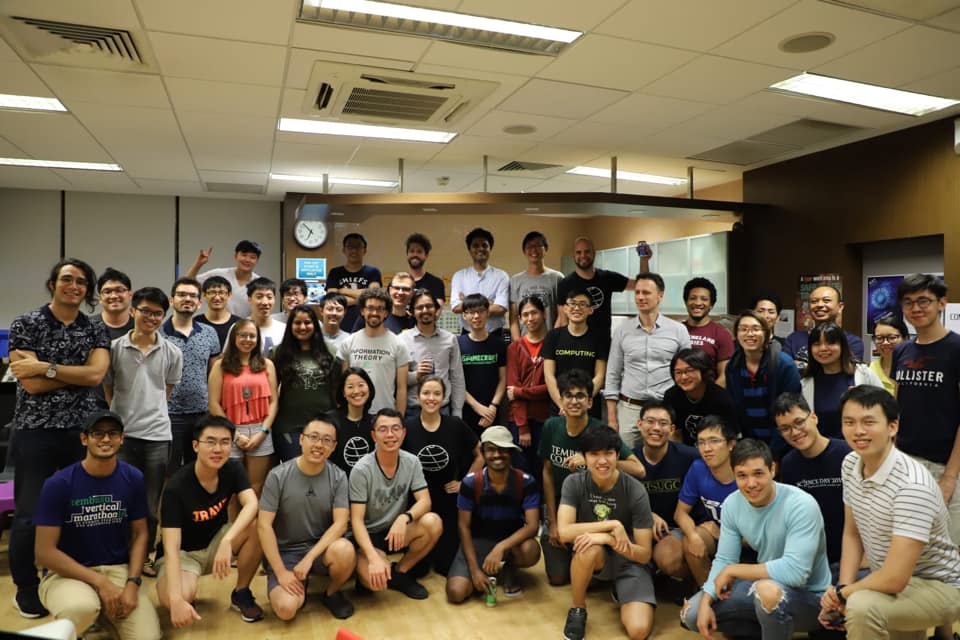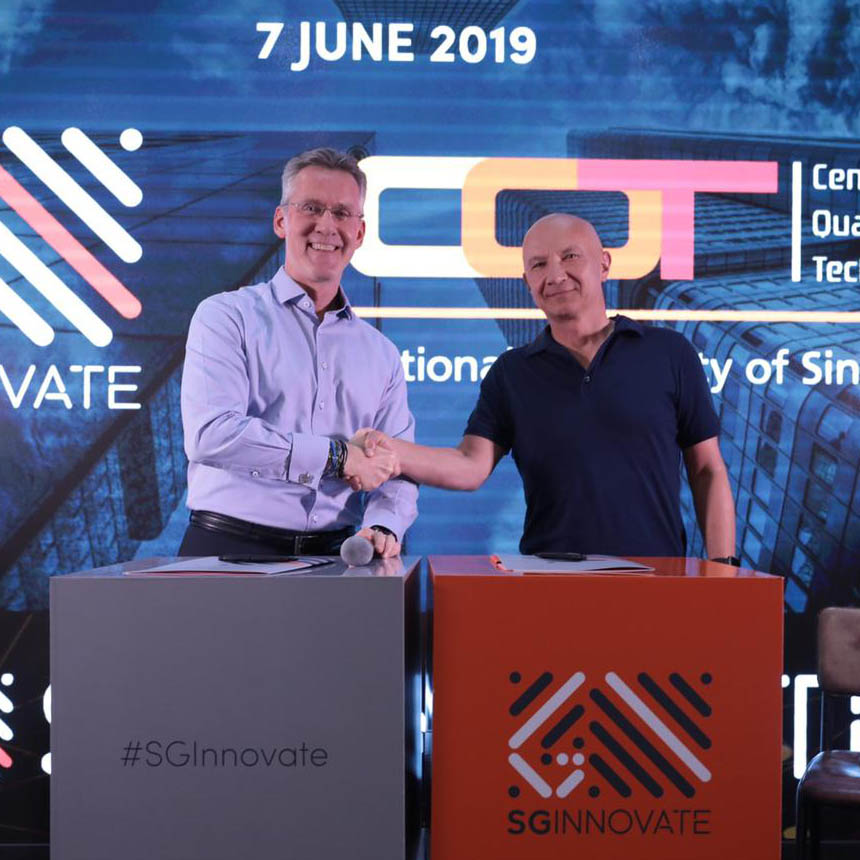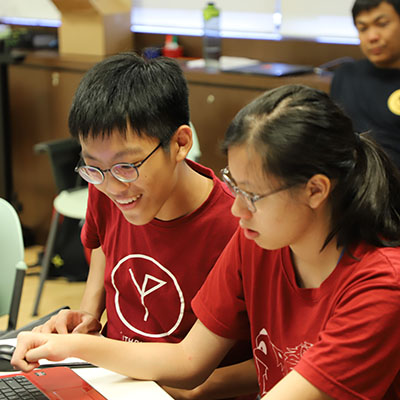Highlights
CQT hosts hackathon for quantum coding
 Happy faces at the Qiskit Hackathon hosted in Singapore in October 2019.
Happy faces at the Qiskit Hackathon hosted in Singapore in October 2019.
For anyone wanting software skills that are future-ready, now’s a good time to learn quantum programming. CQT held a hackathon 11-12 October for over 40 students and professionals to learn to code in one of the leading software development frameworks for quantum computing.
The Qiskit Hackathon @ Singapore was the first community-organised hackathon with technical support from the Qiskit team.
Qiskit is an open source quantum computing software development framework for quantum programming founded by IBM. IBM is offering cloud access to quantum computers built with superconducting technology. For the hackathon, Qiskit coaches flew in from IBM Research Tokyo and IBM Research Headquarters at Yorktown, New York.
In November, CQT will host trainers from Google for a small workshop on that company's Cirq software for quantum computing. Google is also developing quantum computers with superconducting qubits. Their machines are not currently available for public or commerical use.
Learning and hacking
Over the two days of the Qiskit Hackathon @ Singapore, participants attended tutorials, including a Quantum Computing 101 lecture by CQT Principal Investigator Dimitris Angelakis, and hacked to their hearts' content. In teams, they used Qiskit to tackle a wide variety of projects from games to a quantum random number generator. Each team was assigned a Qiskit coach for advice and guidance.
Projects showcased on the last day of the hackathon included a Piano-Tiles-inspired quantum rhythm game, a quantum spin on the classic Space Invaders, a quantum classifier to identify whether pixelated pictures were hotdogs or not hotdogs, and quantum optimisation problems.
CQT PhD students Hermanni Heimonen, Tobias Haug and Kishor Bharti worked together at the hackathon on implementing a certified random number generator, called QRAKEN. “The random numbers it generates come from measuring entangled states and they can be guaranteed to be truly random. This scheme is only possible when run on real quantum hardware” says Hermanni. “We really enjoyed the hackathon and interacting with the Qiskit community and we look forward to further developing the project,” he says. The team’s project can be found in the github repository: https://github.com/HermanniH/QRAKEN. Details of the other hackathon projects are posted on Github too.
From tweet to plan
The event came about thanks to the initiative of Huang Junye and Anurag Saha Roy.
Junye, a Research Assistant in the Centre for Advanced 2D Materials and a part-time PhD student in the Department of Materials Science and Engineering, first got the idea to organise a similar event after attending the first Qiskit Camp in the United States in February 2019.
“I had little experience in software and game development before Qiskit Camp. But after that, I gained more confidence in my software engineering skills,” says Junye of his experience. “I really wanted to bring the experience to students in Singapore.”
Then in May this year, Junye saw a tweet by Anurag. Anurag is a CQT alumnus who worked as a Research Assistant in the lab of CQT Principal Investigator Kai Dieckmann. He is now with Atomionics, a CQT spin-off developing quantum sensors.
“I was quite sad to see all the Qiskit events taking place in US and Europe and decided to tweet to Qiskit on Twitter about a Hackathon in Singapore. It was completely in line with the open source and community driven nature of the Quantum Programming community,” said Anurag. “Soon Junye contacted me and we teamed up with CQT to make this work.” The confirmation of support from the Qiskit team came soon after.
For most of the Qiskit hackathon participants, it was their first experience with quantum. One participant commented that “learning and having a crash course on quantum computing” was what they enjoyed the most. In a survey, 95% of the participants reported having a positive experience, describing it as “collaborative”, “fruitful” and “eye-opening”.
In the closing ceremony, the Qiskit coaches gave each team feedback. They will continue to work with some of the teams to polish the projects, contribute to the Qiskit code base and submit to the IBM Q Awards competition.
Anurag and Junye have written articles about their personal perspectives of the Qiskit Hackathon @ Singapore - read them here and here.









